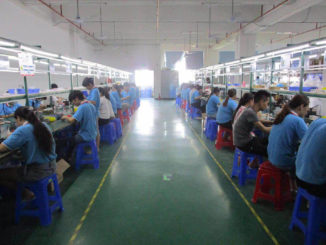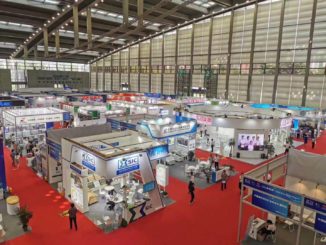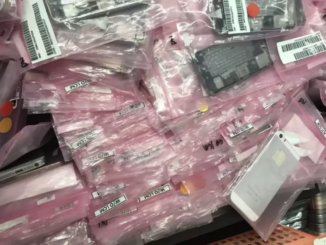China might not get as much attention as the center of the tech world, but when it comes to electronics manufacturing, Shenzhen is hard to beat.
Forty years ago, Shenzhen was merely a fishing hub adjacent to Hongkong. In 1979, it’s the Communist Party Leader Deng Xiaoping’s designation of the city as the country’s first Special Economic Zone that it has undergone rocketed developments with the fueling of capitalism and foreign investment.
In 2010, at the 30th anniversary of the sweeping economic reforms, Chinese president Hu Jintao recalled the city as a miracle. Today, the magical transformation of Shenzhen from a fishing village into an electronic manufacturing paradise has been carried far by the city’s inhabitants. Shenzhen is one of the fastest growing cities across the world with over 13 million residents compared to the 30,000 in 1979. The former fishing man’s destination along the Pearl River Delta is also held as the financial capital of Southern China as it proudly hosts a great amount of tech firms, startups, accelerators and is also home to Shenzhen Stock Exchange.
Regardless of the significant downsides to doing business in China, if you’re starting an electronic business from scratch, you’ll likely have trouble finding another place that can produce your electronics at affordable rates within a short time. Shenzhen may be your next home if you’re interested in establishing an electronic brand. Either way, here’re a few things to take into account for doing China wholesale electronic business in the fast growing metropolis.
- It’s a maker’s paradise
When it comes to finding an electronic manufacturer or a supplier of parts, Shenzhen is the second to none option as the city is home to massive electronic malls along Huaqiangbei Road. Whatever you are looking for, circuit boards, drones, LED lights, LED display, Huaqiangbei has just about anything you need within easy reach. If you’re looking for an injection-molding or hardware manufacturer, there’re plenty of factories that can build the first prototype within few days. There’s also massive packaging suppliers and shippers in the neighborhood since the city manufactures 90% of electronics in the world.
- Internet censorship
Censorship is a big downside for doing business in China especially for companies that rely a lot on internet. The Communist Party has strict monitor over web content, access to certain sites and services. Certain URLs and keywords at the router level are censored by State-licensed internet access providers. Websites like Google, Facebook, Instagram, Twitter…are blocked in China. Virtual private networks and proxy servers are used to bypass the Great Firewall of China to access those blocked sites. From time to time these VPNs have been cracked down by the government but new ones sprung up soon.
- Watch out for intellectual infringements
The biggest downside of doing business in China is intellectual infringement as the country’s loose enforcement of intellectual property laws. Many entrepreneurs learnt it the hard way not sooner after they launched the campaigns on Kickstarter then they found similar products in Huaqiangbei. Counterfeiting of software, consumer goods, industrial products are perpetrated by the large companies and manufacturers. According to the National Security Agency, the vast-IP theft has lead to $320 billion annual losses to the US economy. To crack down the IP theft, the US government has implemented more stringent policies like creating the Interagency Trade Enforcement Center and the Office of Intellectual Property Enforcement Coordinator. Though measures have taken, the problem is so epidemic that they aren’t proven so useful. In the end, many companies find that the best defense is to treat the factory well with reasonable prices in the hope that they won’t sell their IP to their competitors.
- Taxes
China is quite business friendly while it comes to tax rates. Since 2019, China offers a relatively low corporate tax rate of 10% compared to the 39% high-end corporate tax rate in the US. Besides, in China there isn’t any tax on interest earned in bank accounts.
- It’s the Silicon Valley of China
The city is a maker’s paradise thanks to the ecosystem of cheap parts, labor costs, shipping and crowdsourcing. You can easily build a prototype and start a Kickstarter, Indiegogo campaign, and, if it’s successful, you’re off to the races. If you’re thinking about starting a business in Shenzhen, you’re in the right place. HAXLR8R, the Silicon Valley tech accelerator focusing on robotics, wearables and other electronics, has an 111 day program in Shenzhen and demo day in San Francisco. “Shenzhen’s the Silicon Valley of hardware”, said the general partner Benjamin Joffe in a video.



Leave a Reply